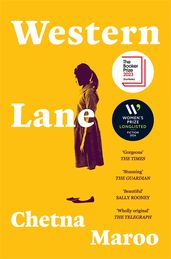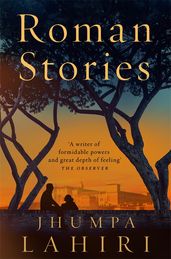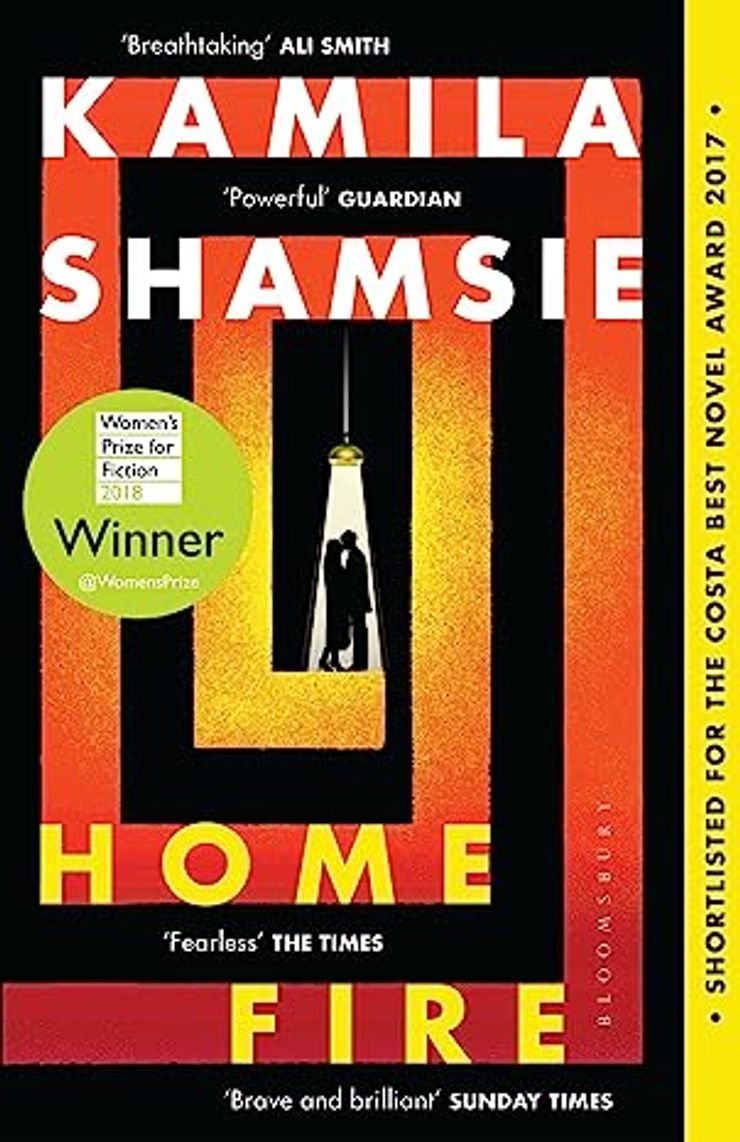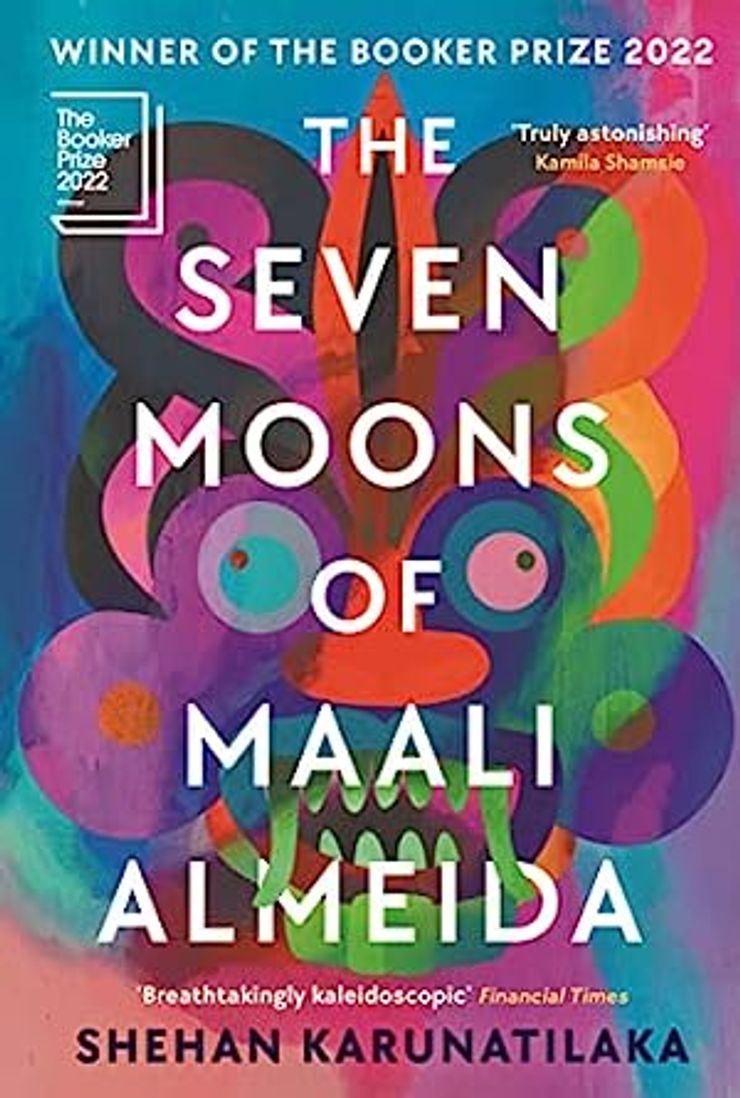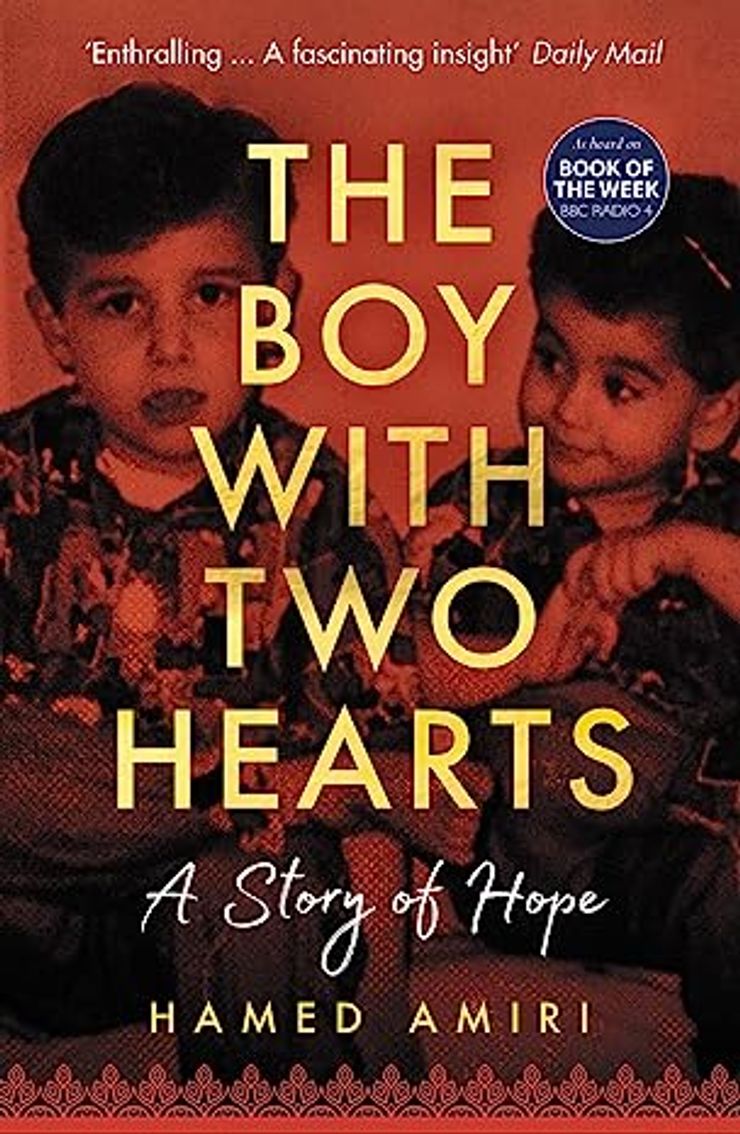South Asian Heritage Month: 12 books for your TBR pile
South Asian Heritage Month celebrates and explores the diverse heritage and cultures that link the UK with South Asia. Here are twelve brilliant books which do just that.

From Bangladesh to Pakistan, India to Sri Lanka, here are twelve brilliant books by British South Asian authors, and writers with roots in South Asia and connections to the UK. Add them to your to-read list for South Asian Heritage Month and beyond. . .
Western Lane
by Chetna Maroo
Longlisted for the Women's Prize for Fiction 2024 and shortlisted for the Booker Prize 2023
Exploring themes of grief and sisterhood, this debut coming-of-age story packs a lot of emotion into just 176 pages. Eleven-year-old Gopi has been playing squash for as long as she can remember. When her mother dies, her father enlists her in a brutal training regimen. Soon, the game has become her entire world, causing a rift between Gopi and her sisters. But on the court, governed by the rhythms of the sport, she feels alive. This novel beautifully captures the ordinary and annihilates it with beauty as we follow a young athlete's struggle to transcend herself.
Rosarita
by Anita Desai
Arriving in San Miguel, Mexico, a destination chosen to help her improve her Spanish, from her native India, young student Bonita is anonymous and acutely aware of the possibility of adventure stretching out ahead of her. But, as she sits in a park, silently watching this unfamiliar world go by, she meets a stranger who swears she knew Bonita’s mother as an art student decades before. This woman’s revelation leads Bonita on a journey to learn the truth of who her mother once was; a journey that will change their relationship for good.
My Beloved Life
by Amitava Kumar
With his mother bitten by a cobra as she prepared to give birth to him in India, Jadunath Kunwar’s life was remarkable and full of challenges before he was even born. In My Beloved Life Amitava Kumar tells the story of Jadunath’s life, from his birth in 1935 to his death during the darkest days of the Covid-19 pandemic. Told through Kunwar and his daughter Jugnu’s experiences, My Beloved Life is a poetically written meditation of the life of one ordinary man living in a country in the midst of unprecedented change.
In the Light of What We Know
by Zia Haider Rahman
Approaching forty, investment banker Zafar, whose career is collapsing and whose marriage is unravelling, receives a surprise visitor to his home. Recognising the dishevelled figure as an old university friend who disappeared years earlier in mysterious circumstances, Zafar finds the man has resurfaced to make a confession of unsettling power. In the Light of What We Know, which won the James Tait Black Prize and was shortlisted and longlisted for a number of other awards, is the story of a bond between two men and the betrayal of one by the other, as well as a book that wrestles with the 2008 financial crash. Rahman, who was born in Bangladesh and grew up in England, was an investment banker himself, as well as a human rights lawyer, before becoming a writer.
The Centre
by Ayesha Manazir Siddiqi
Imagine being able to learn any language you want, and be an expert in it, in a matter of days. That’s the scenario explored by Ayesha Manazir Siddiq, who lives in London and is from Karachi in Pakistan, in her debut novel The Centre. At the heart of the book is Anika Ellahi, who longs to be a translator of “great works of literature” but is currently writing subtitles for Bollywood films. When her boyfriend Adam, who has an extraordinary aptitude for languages, learns Urdu practically overnight, she demands to know how. His secret is the Centre, an elite, invite-only programme that guarantees total fluency in any language in just ten days. Sceptical but soon seduced by the Centre’s possibilities, it’s not long before Anika discovers the real cost of its services. Taking readers between Karachi, London and Delhi, The Centre is a funny and dark look at the politics of language, translation and appropriation.
The Year of the Runaways
by Sunjeev Sahota
Sunjeev Sahota’s powerful novel The Year of the Runaways is the story of a disparate group of men – all illegal immigrants from India – trying to survive in Sheffield. Among their number are former rickshaw driver Tarlochan, who keeps quiet about his past; Randeep, who has a visa-wife in a flat on the other side of town; and Avtar, who has a secret that binds him to protect Randeep. Taking readers from India to England, and untangling the stories of the men through memories of their childhood as well as the present day, Sahota’s novel is moving and devastating, yet infused with hope. The Year of the Runaways is the second novel by Sahota, who was born in Derbyshire and whose grandparents moved from the Punjab to England in 1966, and was shortlisted for the Booker Prize in 2015.
Roman Stories
by Jhumpa Lahiri
Being able to command the written word is a skill all good writers have. Being able to command the written word in more than one language is something rarer, but it’s a task that Jhumpa Lahiri is adept at. The author writes in English and Italian, and also translates from Italian; she’s done both for her forthcoming book Roman Stories, a collection of short stories in which Rome is not just a backdrop but is also a character itself. Roman Stories is out in October, and is co-translated by Todd Portnowitz. Lahiri’s experiences in and of multiple countries – she was born in London to Bengali parents, and lives between New York and Rome – shine through on the page in her subtle and astute observations.
Home Fire
by Kamila Shamsie
Winner of the Women’s Prize for Fiction, Kamila Shamsie’s Home Fire is a modern-day retelling of Sophocles’ Antigone, focusing on a trio of British Pakistani Muslim siblings. Oldest Isma, who raised her younger brother and sister after their mother’s death, is now pursuing her own path. But she can’t help worrying about headstrong Aneeka or their brother Parvaiz, who has disappeared to follow the path of the jihadist father he never knew. When Eamonn, the son of a politician, enters the sisters’ lives, the fate of the two families intertwine. Shamsie, who was born and brought up in Karachi and who now lives in London, has woven a story for our times, which builds and builds to an extraordinary and shocking ending.
How (Not) to Have an Arranged Marriage
by Amir Khan
You’ll know Dr Amir Khan from his appearances as the resident doctor on ITV’s Lorraine and Good Morning Britain, and as the author of the memoir The Doctor Will See You Now, and he’s now turned his hand to fiction. How (Not) to Have an Arranged Marriage, which is out in September, is the story of golden child Yousef. As he finishes his medical degree, the next steps in Youssef’s life are to marry a woman of his parents’ choosing and make his family proud. But when he meets fellow student Jess, he finds himself torn between two worlds and living two lives. Khan, who works as a GP in Bradford and is of Pakistani and Indian heritage, has written a funny and heartfelt novel about love, marriage and family.
The Seven Moons of Maali Almeida
by Shehan Karunatilaka
The Seven Moons of Maali Almeida won the Booker Prize in 2022, making Shehan Karunatilaka – born and brought up in Sri Lanka, and who has lived in London, Amsterdam and Singapore – the first Sri Lankan author to win the award in its history. A satire set in the country’s capital Colombo, the book takes place in 1990 in the middle of the Sri Lankan Civil War, which took place from 1983 to 2009. Its title character is a war photographer and gambler who has kept his sexuality a secret. When he wakes up dead in what seems like a celestial visa office, he has seven moons to try and connect the man and woman he loves most and lead them to a hidden cache of photos that will rock Sri Lanka.
In the Skin of a Lion
by Michael Ondaatje
Michael Ondaatje, who was born in Sri Lanka, went to school in London and lives in Toronto, is best known for his Booker Prize-winning novel The English Patient, which was adapted into an Oscar-winning film starring Ralph Fiennes. Ondaatje’s In the Skin of a Lion, is about Patrick Lewis, who arrives in Toronto in the 1920s, leaving behind his Canadian wilderness home and learning about his new city through the lives of the people around. A look at history and myth, and where they collide and divide, In the Skin of a Lion was the predecessor to The English Patient.
The Boy with Two Hearts
by Hamed Amiri
In 2000, Hamed Amiri’s mother Fariba spoke out against the fundamentalist leaders of her country, Afghanistan. When the Taliban gave an order for her execution, the family knew they had to escape. A perilous and long journey was made both more terrifying and urgent by the fact that Amiri’s older brother Hussain had a rare heart condition, and needed life-saving treatment that could be found in the UK. Amiri’s story of his family’s fight for survival through the year and a half they spent travelling as refugees is a wake up call to appreciate our loved ones and to offer kindness to strangers. It is also a moving love letter to the NHS, and a tribute to Hussain.
